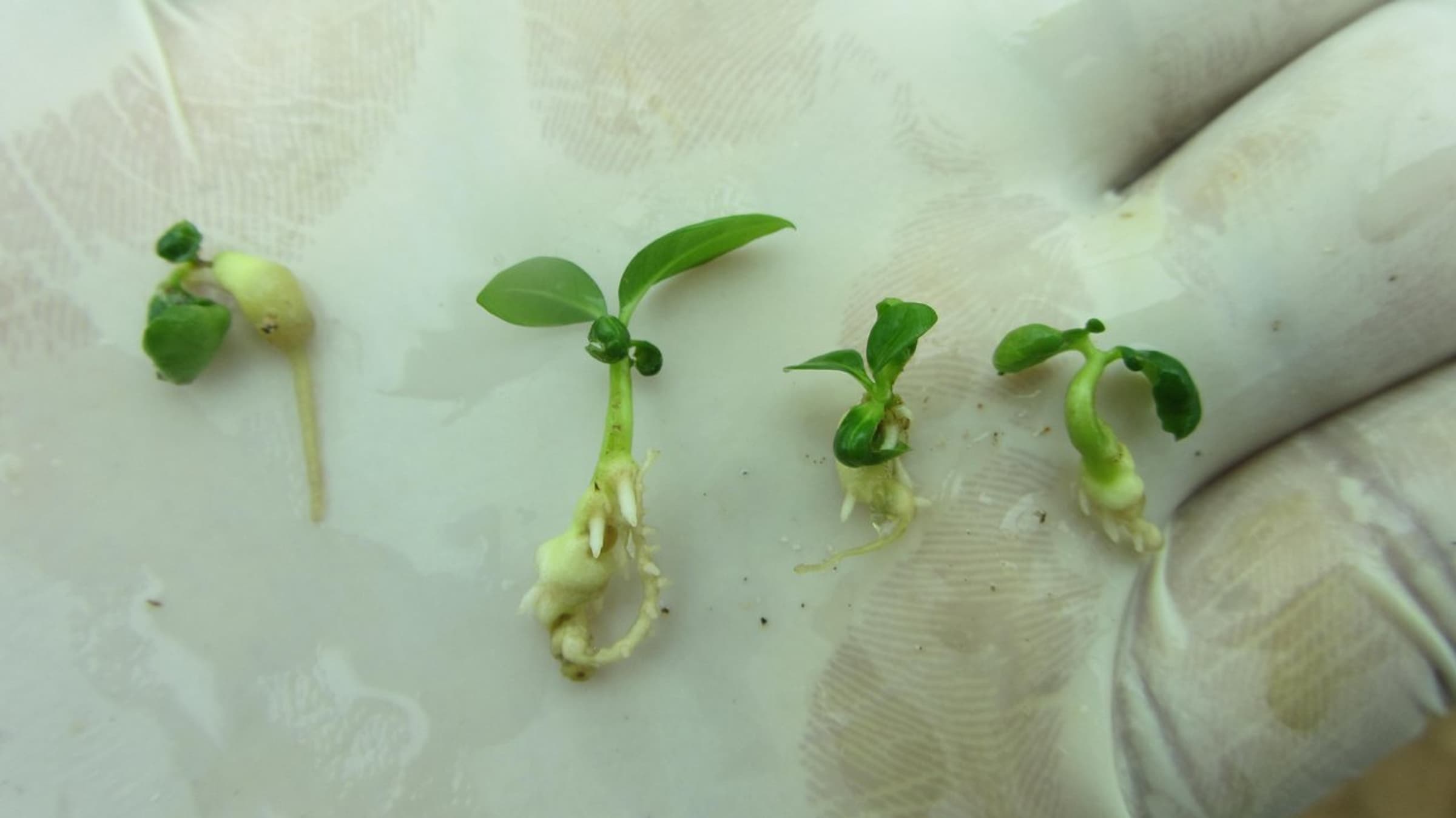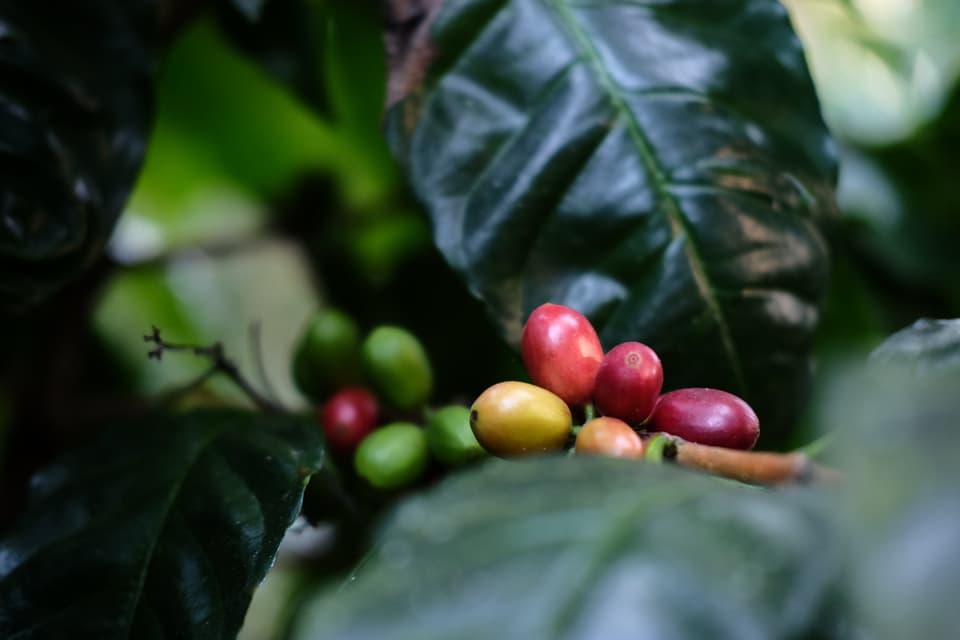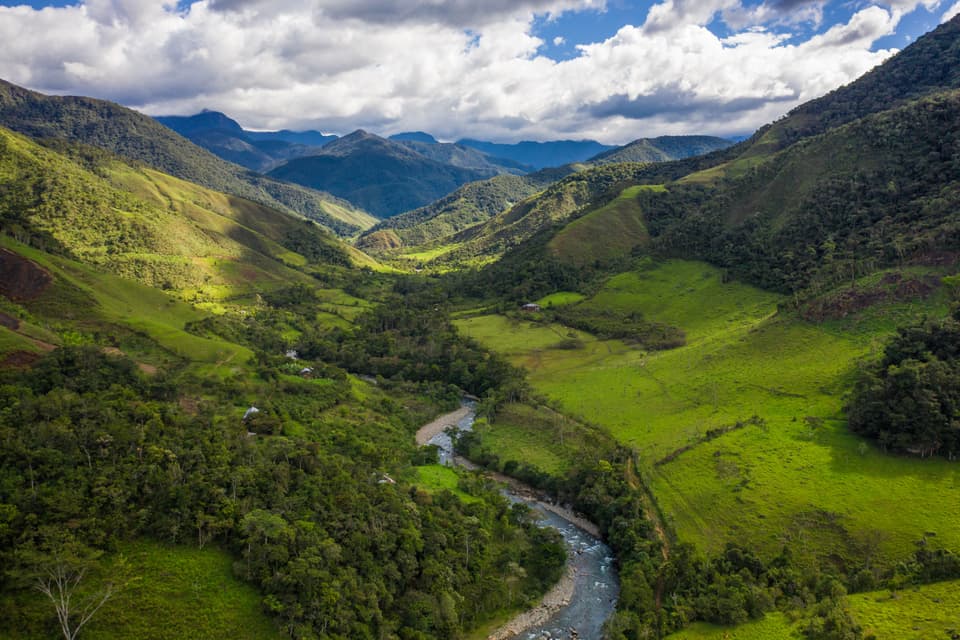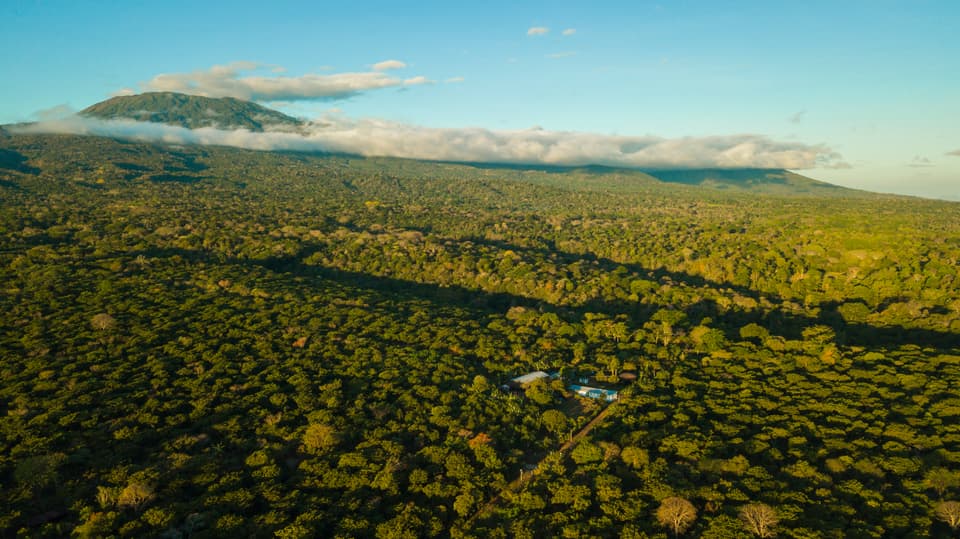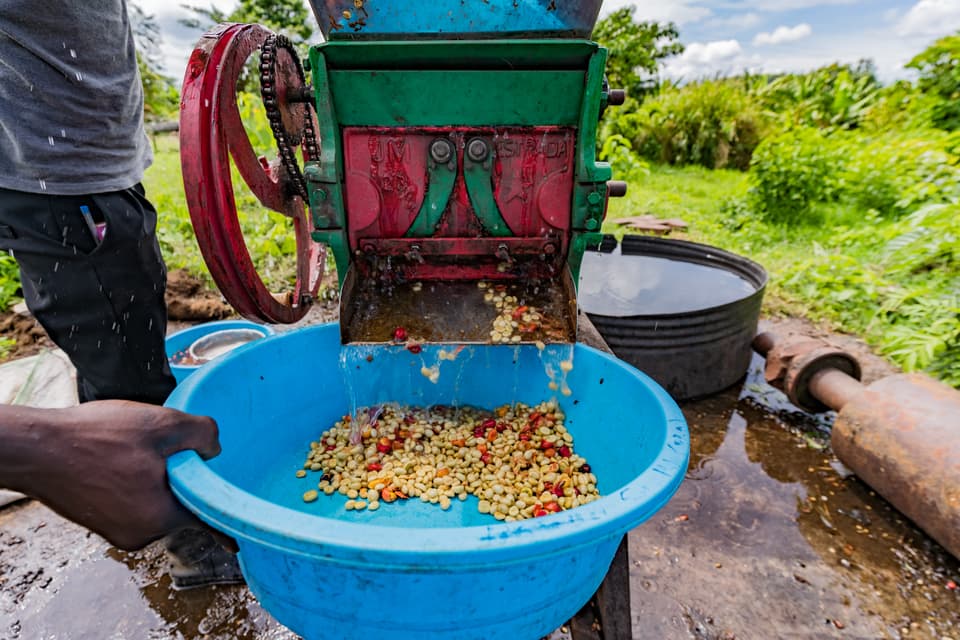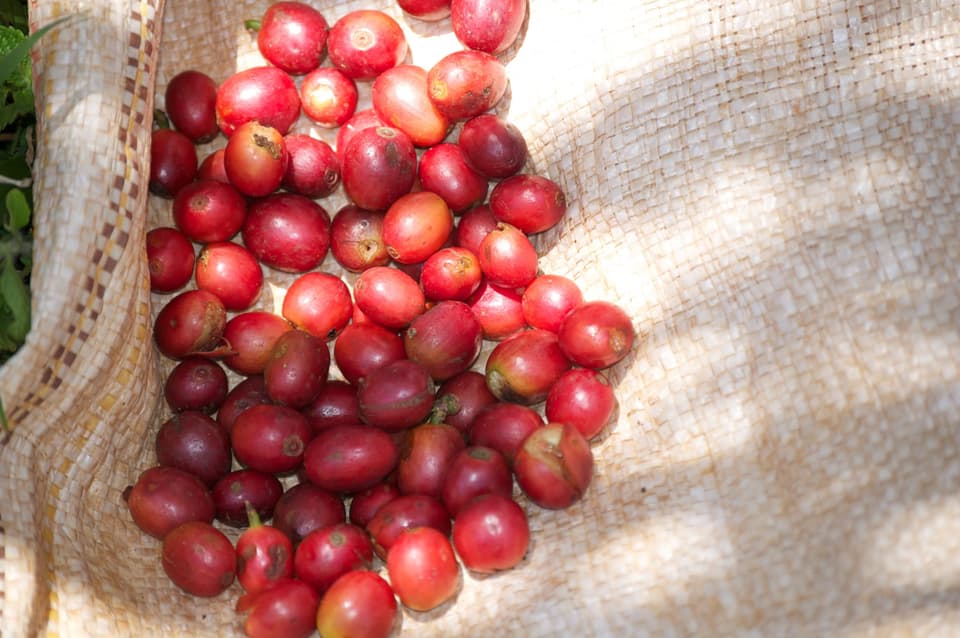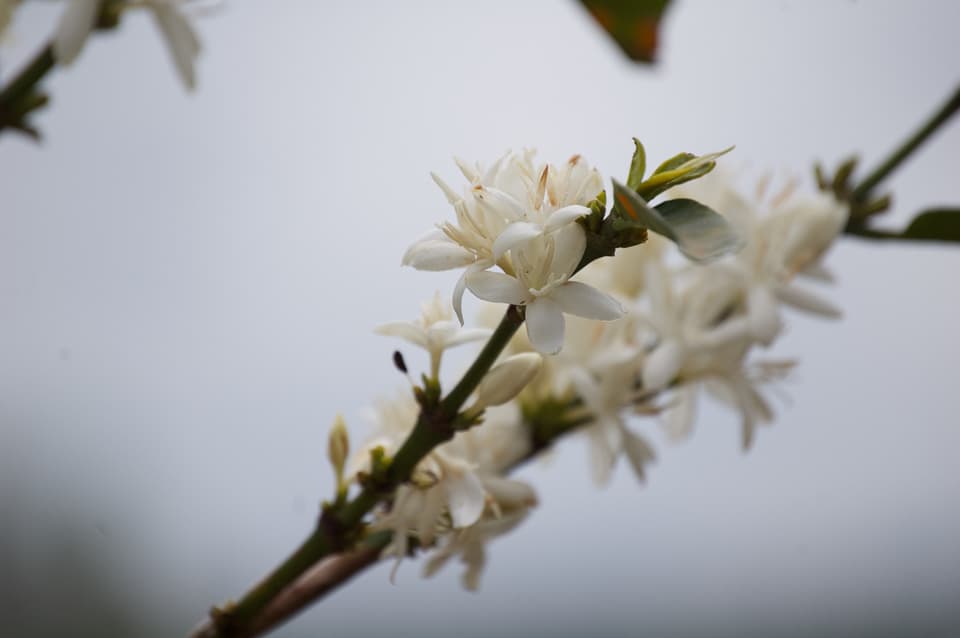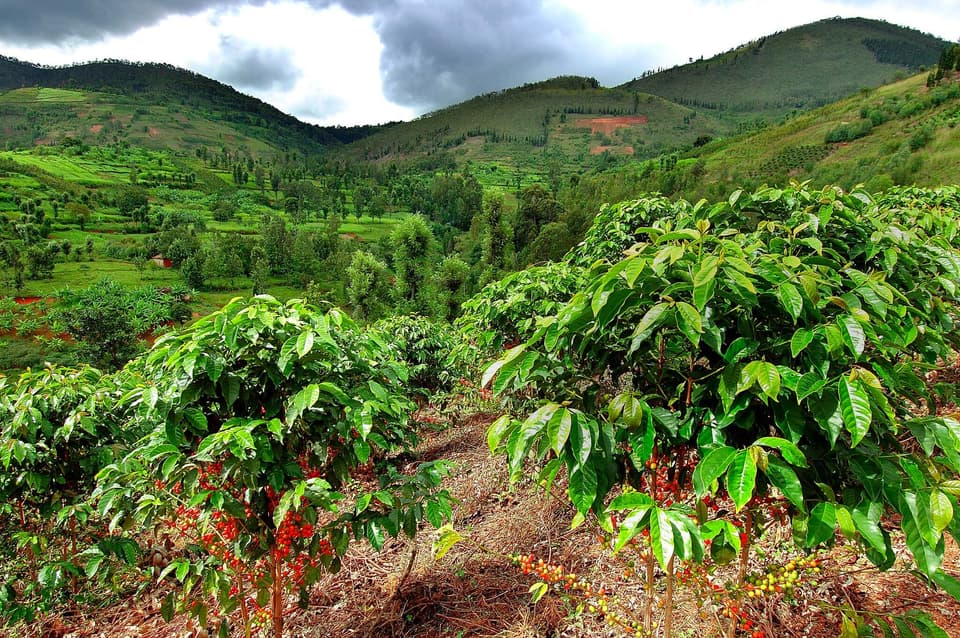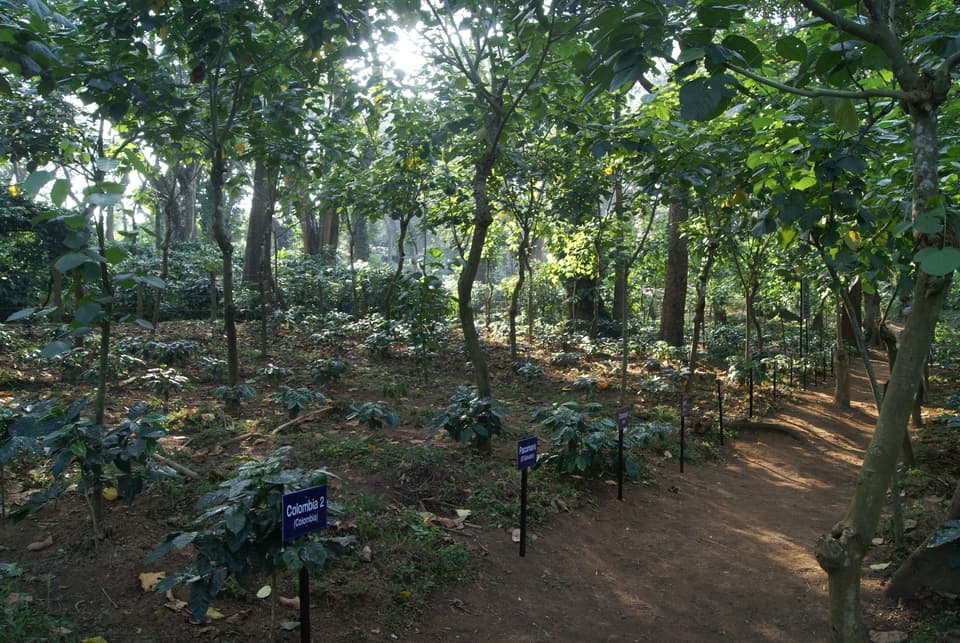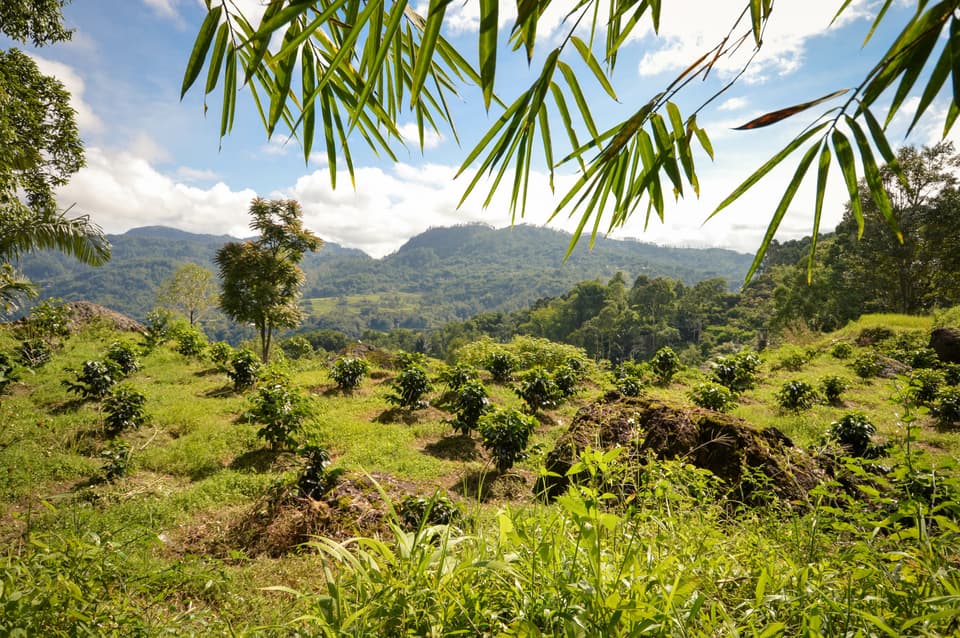- Central Coffee Research Institute (CCRI)
- Indonesian Coffee and Cocoa Research Institute (ICCRI)
- Kenya Agricultural & Livestock Research Organization (KALRO)
- National Coffee Research Institute (NaCORI)
- Southern Cross University
- Department of Agricultural Research Services (DARS)
- USDA Agricultural Research Service
- ECOM Trading
- CENFROCAFE
- Rwanda Agriculture and Animal Resources Development Board (RAB)
Trials
International Multilocation Variety Trial
A first-of-its kind undertaking to facilitate global research on the world’s highest quality coffee varieties.
The problem
Coffee farmers typically have very few choices about which varieties are available for them to plant. Their choices are limited by forces beyond their control—historical accident and colonial history on the one hand, and whether their country has a tradition of coffee research and development on the other. These constraints mean that coffee producers often plant seeds that are susceptible to disease or don’t perform optimally in their area, leaving them doubly vulnerable. Coffee breeding programs are similarly challenged—basing breeding decisions on limited information about how breeding materials perform in different environments. The IMLVT is the first comprehensive, global effort to study variety performance across such a large group of countries.
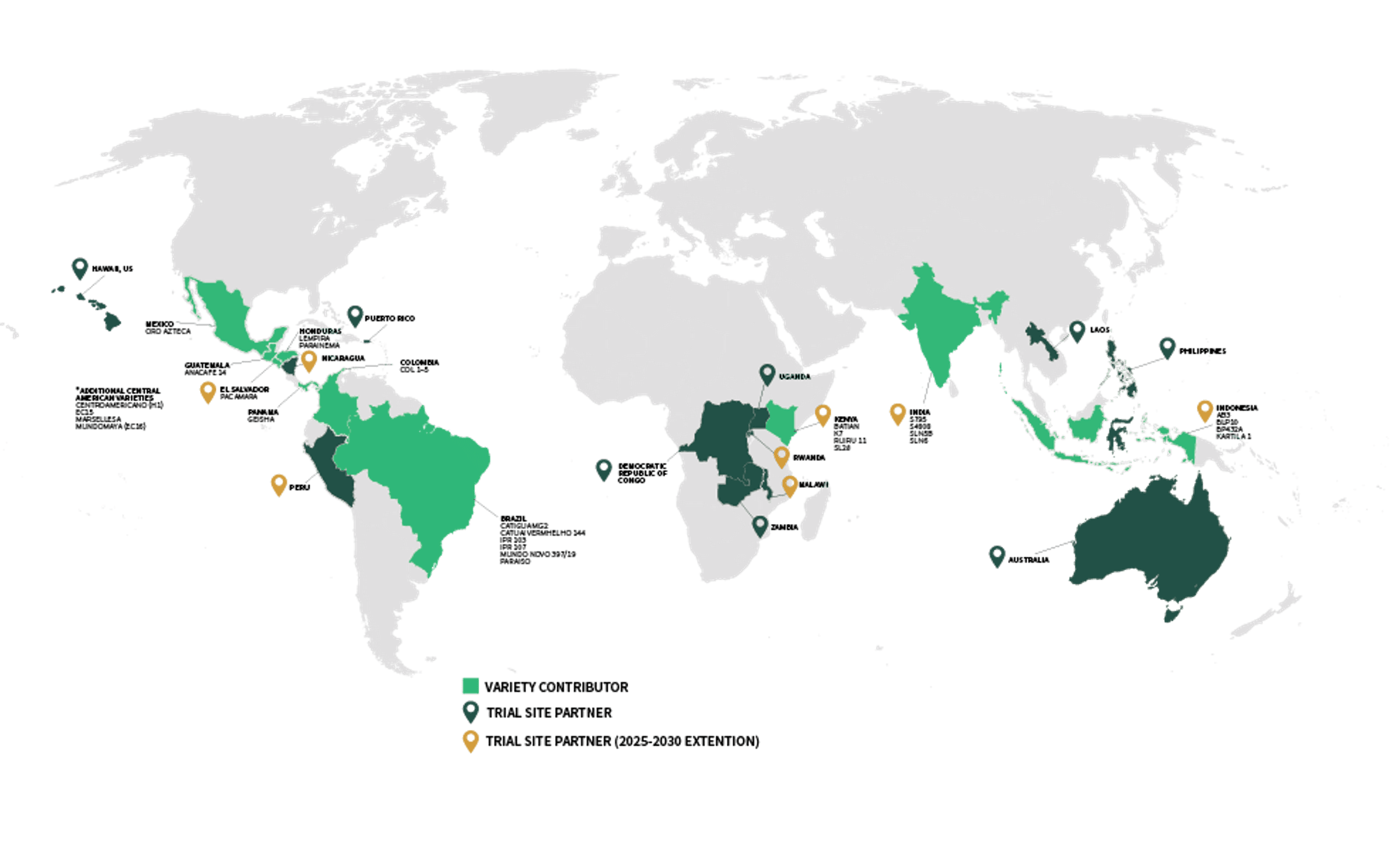
Eleven contributors (countries in light green) supplied varieties for the trial. Varieties were shipped to participating countries (dark green) to be grown and evaluated in research plots. A subset of countries (orange pins) are participating in an extension of the trial from 2025-2030.
The trial
In 2015, World Coffee Research gathered 31 top-performing coffee varieties from 11 suppliers around the world. Over a number of years, the varieties—most of which had never been tested on a broad basis—were distributed to 18 coffee-growing countries for long-term evaluation on 29 research plots. In 2025, the IMLVT program was extended with a smaller group of countries possessing representative sites; the extended trial will run through 2030.
Over its lifespan, IMLVT has generated critical knowledge for coffee producers and agronomists about how varieties respond to different climatic conditions – including extreme environments with high temperatures and long dry periods, which mimic the changing climate coffee growers are seeing in coffee-producing countries around the world. The trial allows researchers to see how varieties perform under climates predicted for the future and provides the largest global dataset ever created for deciphering genotype x environment interaction in coffee. The trials lays the groundwork for advances in coffee breeding, climate adaptation strategies, and future research.
The trial also builds essential capacity within producing countries to conduct coffee research. All participating countries installed, maintained, and monitored trials plots (on average 1-3 per country). On each plot, a comprehensive list of variables is measured using standardized protocols developed by WCR. Each country monitored how different varieties perform under local conditions, and in some cases negotiate for access to multiply and distribute the best performers to producers in their countries in order to to increase supplies of quality coffee.
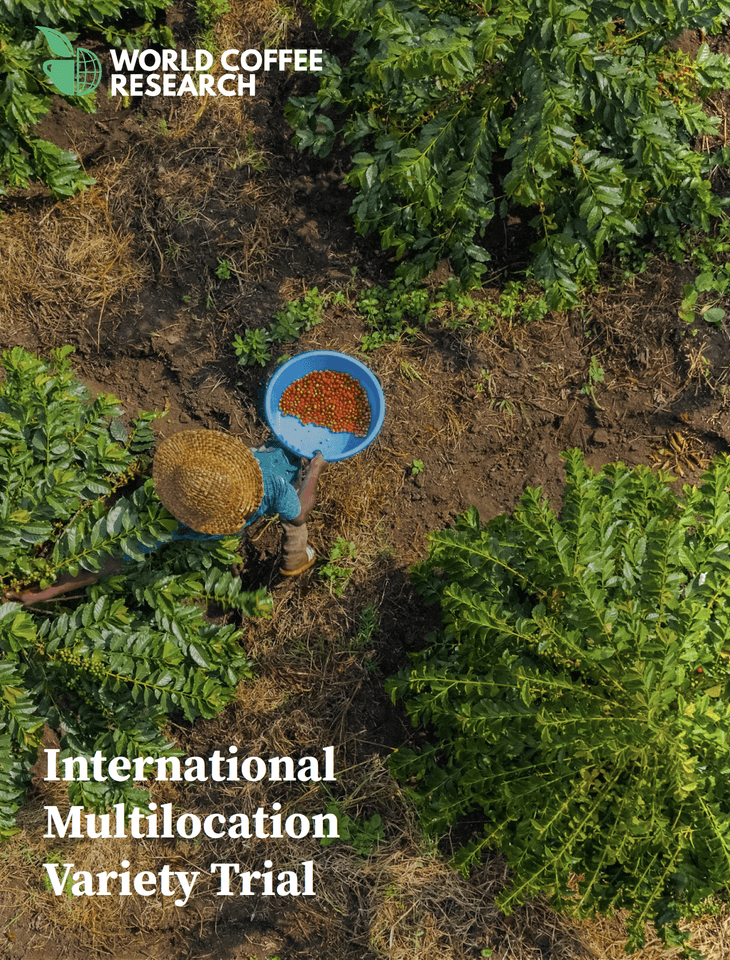
pdf
International Multilocation Variety Trial: How It Works
A summary of our largest trial to date
Impact
Farmers around the world—as well as coffee-producing countries and the industry as a whole—will benefit from access to improved varieties with better productivity and disease tolerance. At the same time, the data generated from the trial will support coffee researchers and breeders to create further improved varieties, resulting in widespread production and quality increases, and contributing to more sustainable farmer livelihoods and a stronger coffee sector.
“WCR has matured a unique network to gather global data on varieties and performance in such a huge number of different environments. It has never been done in the centuries of the existence of the coffee market. This legacy will last forever.” —Giacomo Celi, Director of Sustainability, Mercon

Resource
CafeClima
A free web platform for climate-smart replanting, using data from the International Multilocation Variety Trial
International Multilocation Variety Trial
Our Partners
Below are the partners and countries currently participating in the International Multilocation Variety Trial.
Latin America
Nicaragua
ECOM Trading
ECOM Agroindustrial is a global commodity trading and processing company based in Switzerland. The company specializes mainly in coffee, cocoa, and cotton. ECOM has more than 40 offices located in over 35 countries all around the world. It is the largest coffee miller in the world.
Oceania
Australia
Southern Cross University
Southern Cross University is an Australian public university, with campuses at Lismore and Coffs Harbour in northern New South Wales, and at Coolangatta, the most southern suburb of the Gold Coast in Queensland.
Asia
India
Central Coffee Research Institute (CCRI)
CCRI, established in 1925, is the research and extension arm of the Coffee Board of India. CCRI is located in the heart of Karnataka, India’s most important coffee region.
North America
United States
USDA Agricultural Research Service
The Agricultural Research Service (ARS) is the U.S. Department of Agriculture's chief scientific in-house research agency. Their mission is to deliver scientific solutions to national and global agricultural challenges, from field to table.
Asia
Indonesia
Indonesian Coffee and Cocoa Research Institute (ICCRI)
ICCRI was established in 1911 and has played an active role in the research and development of coffee and cocoa in Indonesia for more than a century. In 2013, the national Ministry of Research and Technology declared ICCRI a Center of Excellence (CoE) for coffee.
Africa
Kenya
Kenya Agricultural & Livestock Research Organization (KALRO)
KALRO conducts research to catalyze sustainable growth and development in Kenya’s agriculture sector. Kenya has one of the longest histories of formal coffee research in the world, commencing in 1908.
Africa
Malawi
Department of Agricultural Research Services (DARS)
DARS has been generating agricultural technologies to address the challenges that hinder progress in agricultural productivity, food, and income security. DARS is the driving force in the development and dissemination of agricultural technologies in Malawi.
Latin America
Peru
CENFROCAFE
Africa
Rwanda
Rwanda Agriculture and Animal Resources Development Board (RAB)
RAB develops agriculture and animal resources through research, agricultural extension, and animal resources extension in order to increase agricultural and animal resources productivity and quality, as well as their derived products.
Asia
Indonesia
Key Coffee Inc.
Japanese coffee roaster sourcing premium beans; offers retail blends, instant, organic lines, and drip packs—emphasizing innovation and coffee culture since inception. Key Coffee operates a commercial coffee farm with research plots at Toraja, Indonesia.
